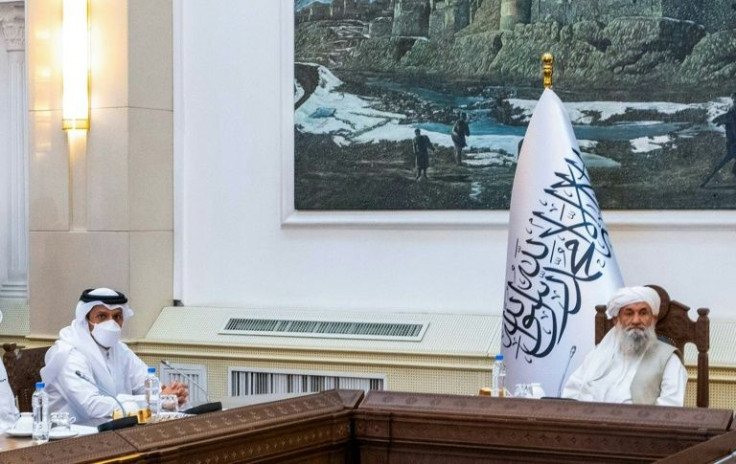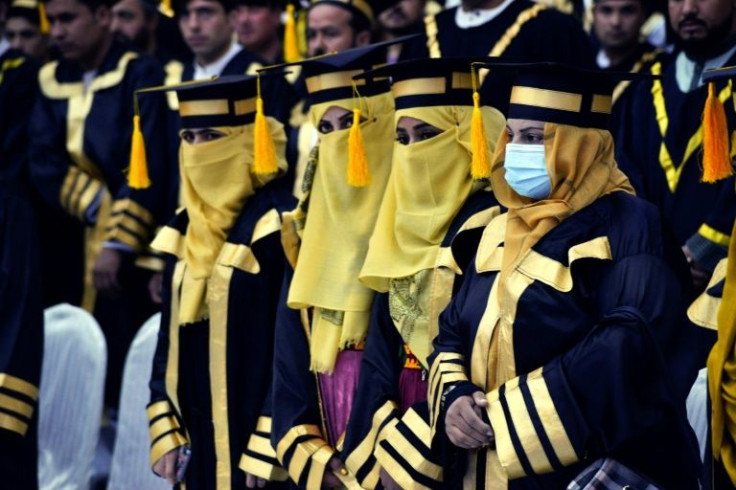Taliban Regime Won't 'Interfere' In Other Countries' Affairs: PM
The Taliban co-founder and now prime minister of Afghanistan Mullah Mohammad Hassan Akhund pledged Saturday that his government will "not interfere" in other countries' internal affairs, and urged international charities to continue offering aid to the war-ravaged country.
Hassan's audio speech broadcast on state television -- his first address to the nation since the Taliban seized power in August -- came ahead of next week's meeting between the United States and the Taliban in Doha.
"We assure all the countries that we will not interfere in their internal affairs and we want to have good economic relations with them," said Hassan in a nearly 30-minute speech that came amid criticism on social media for remaining silent since the Islamists took power, even as the nation faced severe challenges.
"We are drowned in our problems and we are trying to get the strength to bring our people out of miseries and hardships with God's help."
The Taliban seized power on August 15 after ousting the previous US-backed government, as Washington hurriedly withdrew its troops from the country after a 20-year war.

The Taliban's previous regime was toppled in a US-led invasion after the 9/11 attacks in the United States that were carried out by Al-Qaeda, whose now-killed founder Osama bin Laden lived in Afghanistan at that time.
Hassan is a Taliban veteran who was a close associate and political advisor to Mullah Omar, the founder of the movement and its first supreme leader.
Said to be in his 60s, Hassan served as foreign minister and deputy prime minister in the movement's previous regime between 1996-2001.
He was placed on a UN Security Council sanctions list connected to the "acts and activities" of the Taliban.

Hassan's government faces a series of challenges, in particular reviving the country's dilapidated economy that has been dried of international aid, which used to make up 75 percent of the national budget under the previous US-backed governments.
Inflation and unemployment have surged in Afghanistan, while the country's banking sector has collapsed since the Taliban takeover.
The financial crunch was aggravated when Washington froze about $10 billion of assets held in its reserve for Kabul, and deteriorated further after the World Bank and International Monetary Fund halted Afghanistan's access to funding.
The United Nations' aid agencies have warned that a major humanitarian crisis is unfolding in Afghanistan, with more than half of the country's 38 million population expected to face hunger this winter.
The rapidly worsening situation has forced Afghans to sell their household goods to raise money for food and other essentials.
"We ask all the international charity organisations to not withhold their aid and to help our exhausted nation... so that the problems of the people could be solved," Hassan said in his speech, insisting that the problems facing the country were the result of the previous governments.
As the Taliban struggles to emerge as a governing body, the group also faces a stiff challenge from the jihadist Islamic State group that has carried out several brutal attacks.
The US-Taliban talks are to address several issues such as fighting the threat of IS and Al-Qaeda, as well as humanitarian aid to Afghanistan.
Talks will also focus on how to offer safe passage out of Afghanistan for US citizens and Afghans who worked for Washington during the 20-year war.
Washington has insisted that any financial and diplomatic support to the Taliban is based on certain conditions, such as installing an inclusive government and respecting the rights of minorities, women and girls including to education.
"Girls' education has resumed to a large extent and there is hope that the education will be further facilitated," Hassan said, indicating that it would be guided according to Islamic principles.
© Copyright AFP 2024. All rights reserved.







